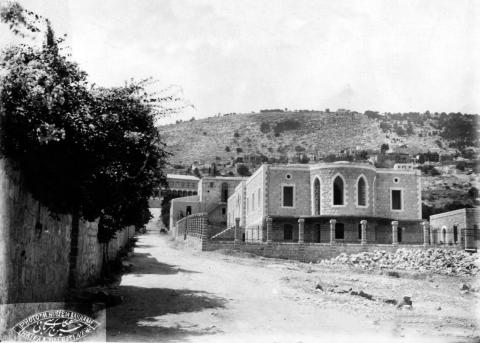Soon after the outbreak [of the war], Haifa, which was still under Turkish rule, was panic-stricken. Most of the inhabitants fled inland, fearing bombardment by the Allies. Those Bahá’í friends who were merchants suffered great losses, for all their stores of tea, sugar, etc., were commandeered by the Government, without payment. The friends, in spite of the reassurances of the Master that no guns would be turned on Haifa, were living in constant fear, and the children, having heard terrible stories which were being told everywhere, grew quite ill, always looking round and about with frightened eyes.
At this time, the Master decided that it would be well to accept an invitation of the Shaykh of Abz'uSinz'an to remove the Bahá’ís and their children to that peaceful, healthy village, out of reach of the dreaded bombarding. In this village also, the very limited resources of the friends would, with strictest economy, be sufficient for their daily needs, with the help of the corn from ‘Abdu’l-Bahá’s storing. Shaykh Salih placed his house at the disposal of ‘Abdu’l-Bahá and His family, Who received the most cordial welcome from this gracious and courteous chief of the Druze village of Abu-Sinan. The other Persian friends were gladly taken into various houses of the village, where they found themselves in most happy surroundings. Their food was of the simplest: lentils, dried beans, delicious olives and their oil, and sometimes milk, eggs, and even some goat's meat. The fresh pure air was, of course, wonderfully good for their health, and they quickly recovered calm nerves and strength of body.
